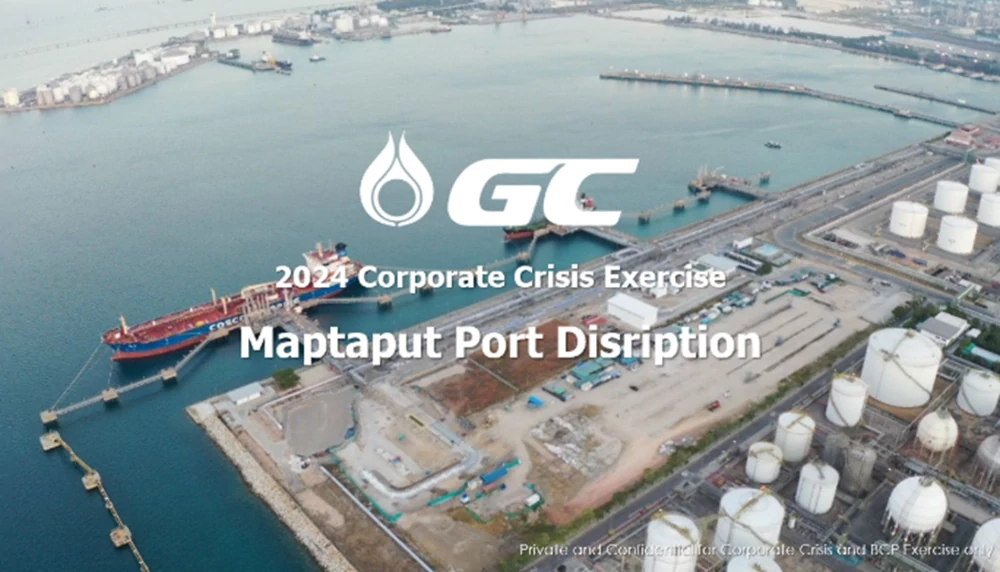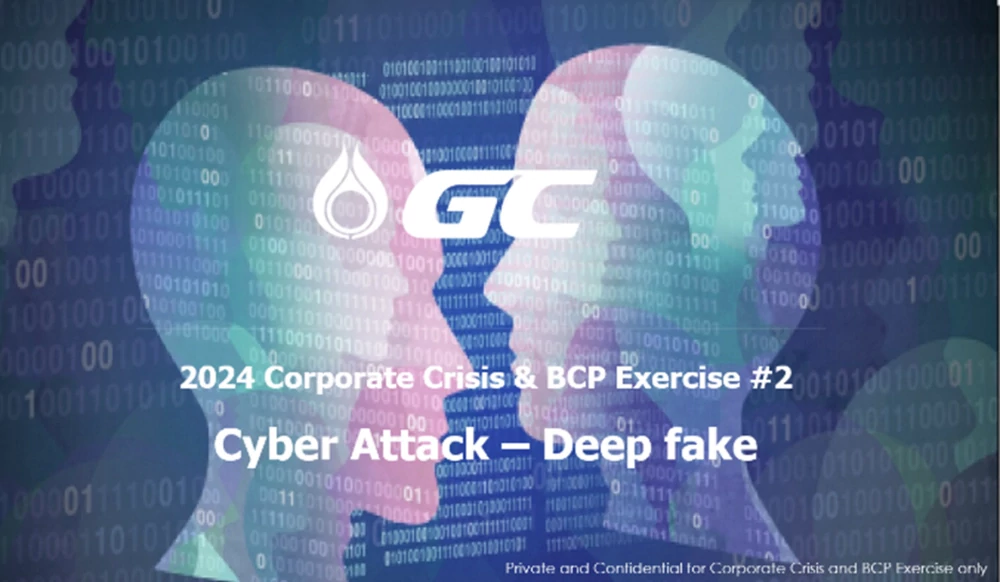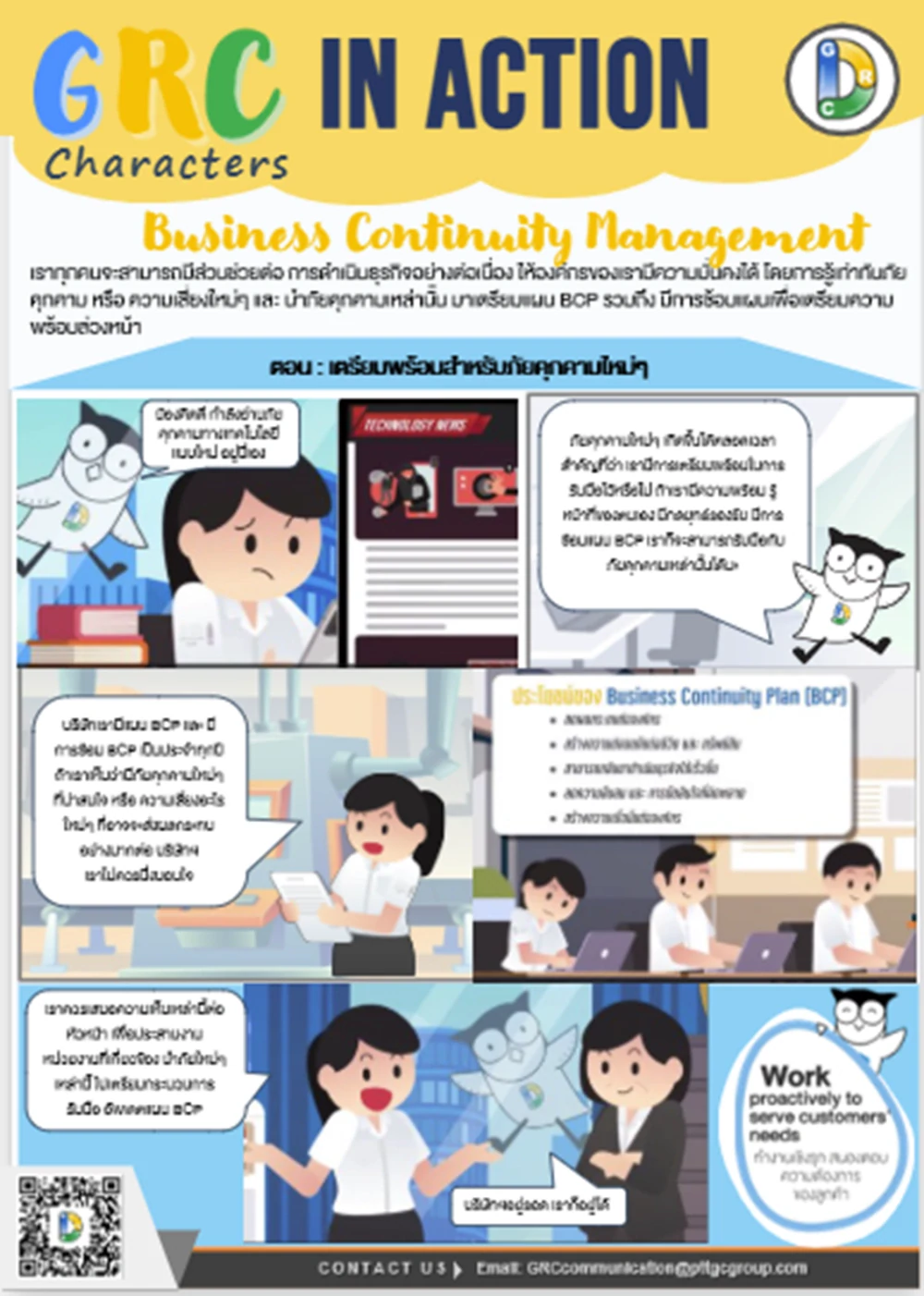Business Continuity Management
Business Continuity Management System
GC has established the Business Continuity Management Policy in line with the ISO 45001, the ISO 22301 (Business Continuity Management System: BCMS) and GC Management System (GCMS) in order to create continuity and maximum efficiency in GC's business operations according to Business Continuity Management System Standard (BCMs Standard).
In the case where an emergency occurs, an Emergency Manager (EM) will be assigned to assess the situation prior establishing the management approach, which can be divided into three levels of emergency as follows.
Emergency level 1
(Plant level)
Non-Violent emergency event, which the situation can be controlled by Emergency Response Team.
Emergency level 2
(Plant level)
Minor emergency event which the situation might affect surrounding communities and requires additional resources to manage situation.
Emergency Level 3 and Crisis Situation
(Province / Country Level)
Major emergency event which the situation’s impact reaches province/city level and requires additional resources to control the situation.
Business Continuity Management
(Business Interruption)
Major disruption event which significantly impact company's reputation, regulation, and business continuity.
Furthermore, GC communicates and educates employees about business continuity management through the BCM newsletter as well as the training such as the "BCM Awareness", "Risk Assessment and Business Impact Analysis" workshop. This is to ensure that the employees are knowledgeable in the BCM system and is able to apply the knowledge with its operations efficiently. These enable GC to be ready to handle emergency situations.
Rehearsal of Corporate Business Continuity Plan
GC mandates annual drills for Crisis Management and Business Continuity Planning (BCP) to ensure the organization can effectively respond to emerging threats in line with enterprise risk assessments. In 2024, GC conducted two corporate-level business continuity drills: one simulating a vessel blocking the Map Ta Phut shipping channel, and another addressing a cyber-attack on the plant’s operational systems.
These exercises aim to ensure that executives and relevant employees clearly understand their roles and responsibilities during incidents and help identify any gaps in contingency measures for improvement and readiness in the event of a real crisis.


GC's Training in Business Continuity Plan
GC has organized training programs to exchange knowledge with affiliated companies, including an e-learning course on business continuity management (BCM) which allows interested individuals to study at anytime. The company has also developed the BCM all-in-one Platform as a source of information and documents related to BCM in order to provide employees with knowledge and understanding of business continuity management process and encourage a culture of continuous learning in the organization. In 2024, GC prioritizes cybersecurity threats and sends selected employees to attend Cyber Security Leadership training courses hosted by expert institutes. This initiative aims to expand knowledge of the business continuity plan (BCP) and establish a newsletter to communicate and share knowledge with employees throughout the organization. This initiative anticipates that employees will better understand and emphasize the importance of the BCP.

Moreover, GC has created the internal communication methods to manage and monitor internal risks as well as prepare Business Continuity Plan, for example, Internet News Letter. GC had also digitalized the emergency reporting and reporting center, including the Incident Management System (IMS).
Incident Management System (IMS) on Mobile
GC has established a Business Continuity Steering Committee (BCS) along with criteria for assessing the severity of incidents and processes for declaring the activation of the Business Continuity Plan (BCP). This framework enables timely management of incidents that may escalate into crises, ensuring that executives can make coordinated and appropriate decisions and directives. Additionally, each department has developed a call tree system to ensure comprehensive internal communication during emergencies.
Furthermore, GC utilises various communication channels for risk management, internal controls, and business continuity management, integrating digital systems as platforms for emergency reporting and information centralisation. Examples include communication via the intranet, newsletters, SMS, and online meetings (e.g., Microsoft Teams).